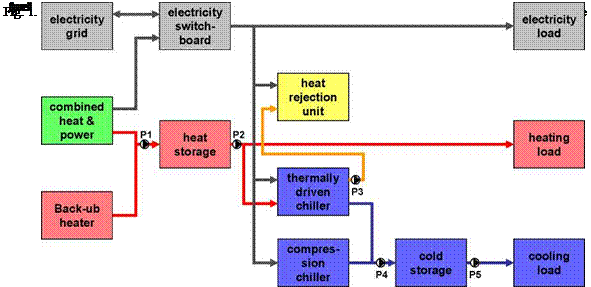Как выбрать гостиницу для кошек
14 декабря, 2021
Joao Farinha Mendes Jose Pedro Almeida 1, Antonio Rocha Silva 1
Manuel Collares Pereira 2, Pedro Adao 2
Miguel Morgado 3
Andrea Costa 4
1 DER/INETI — Edificio G, Estrada do Pago do Lumiar 1649-038 Lisboa Portugal,
2 AOSOL, SA — Lugar da Sesmaria Limpa, 2135-402 Samora Correia, Portugal
3 EUROSOLAR, Lda, R. Domingos Jose de Morais, 57 — 2°Dto, 2685-046 Sacavem, Portugal.
4 ACE, Pfalzerstr. 75, 83109 Grosskarolinenfeld, Germany
‘Corresponding Author, farinha. mendes@ineti. pt
Abstract
This paper describes the work developed so far by the Portuguese partners, involved in the POLYSMART Project [1]. The main goal of the aforementioned project is to support the development of the market for small and medium capacity tri-generation plants, installing twelve demonstration systems, which involve a wide variety of different solutions, using commercial cogeneration systems fed by renewable or non renewable primary sources combined with small thermally driven cooling machines in different stages of development and with different operation principles. The paper makes a review of the rationale for the trigeneration concept in the Portuguese context, describes the two demonstration systems preview for installation in Portugal, shows the configuration adopted for both systems, the monitoring and evaluation procedure already agreed among the partners.
The cost efficiency of a cogeneration plant depends on the number of operating hours, which can be significantly improved by using also the waste heat for cooling purposes, through a thermally — driven cooling machine.
Considering the recent Portuguese legislation about micro-generation, this type of system has become very interesting for the residential and small office buildings in Portugal, not only with regard to the inherent energy savings but also from a pure economic point of view.
This is also the case in other European countries, where there is an important effort in research institutions and industry interest on development of small thermally-driven cooling machines, able to use waste heat or heat produced by a renewable source.
The POLYSMART Project [1] intends to combine those efforts in a European Integrated Project partly funded by the European Commission under FP6, with the main goal to support the development of the market for small and medium capacity tri-generation plants. Coordinated by FhG-ISE, this project involves several established companies with market products in the cogeneration field and thermally-driven cooling machines developers presenting different stages of development of their products. In all participating countries a balanced number of private or public research institutions is included, giving a total number of 34 partners, that transform each working meeting in a real poly-generation congress.
 |
The number and variety of products available at the moment, led to the design of different and interesting combination solutions, connected to the different locations where the twelve demonstration systems are installed. Different energy source supply and different thermally-driven cooling technologies, in seven European countries, will be connected in a wide variety of applications. The possible combinations, usages and links between main components of the polygeneration small scale demonstration systems studied in the framework of POLYSMART Project are described in the block diagram shown in Fig.1.
This paper describes the work developed so far by the Portuguese partners, involved in this project: INETI is responsible for monitoring the two sub-projects carried out in Portugal; AOSOL, a company producing solar collectors of the CPC type, is also a developer of an air-cooled ammonia — water absorption chiller designed for 8 kW cooling power. Two prototypes of this chiller will be used in both sub-projects; EUROSOLAR, an energy consulting company interested in the study and installation of distributed sustainable energy systems.
The first demonstration plant will provide the air-conditioning (heating and cooling) for part of the AOSOL office building whereas the second demonstration plant will be installed by EUROSOLAR at INETI in the new office building, Solar XXI, of the Renewable Energy Department. In both cases the energy necessary to heat up the domestic hot water is planned to be supplied by the tri-generation plants, which include 5 kW electric power generators, using respectively LPG and bio-fuel as primary energy source.
Related with these aspects it is important to make a survey of potential applications matching the design size of these poly-generation systems, which allow using (almost all of them) the waste heat produced during the year.
The paper also describes the main characteristics of each plant, explains its operation modes and. the monitoring scheme implemented at both sub-projects will permit to investigate and assess not only the reliability but also the economic and energy performance of their operation.